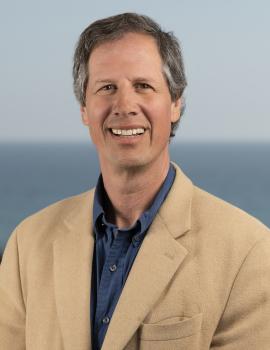
Photo Credit: Yulian Alexeyev
The environment provides a wide range of services that benefit us all: purifying water, buffering floods, pollinating crops, renewing soil and many more. These aren’t just benefits; society wouldn't exist without these vital natural services.
Jim Salzman is a professor of environmental law with joint appointments at the Bren School and UCLA Law School. His broad-ranging scholarship has addressed topics spanning drinking water, policy design and payment for ecosystem services. He wrote the first law...
“The problem is that there are no markets for most services,” said Jim Salzman, a professor at UC Santa Barbara’s Bren School of Environmental Science & Management. “The spawning habitat for young fish and erosion protection from coastal wetlands contribute nothing to their real estate price on Zillow. Farmers don’t get paid for providing habitat for pollinators or wildlife.”
It’s little surprise, then, that land management decisions don’t prioritize providing these services.
Salzman has devoted his career to fostering laws and policies that encourage landowners to provide nature’s services for the benefit of us all. And it’s in this context that he was elected to the prestigious American College of Environmental Lawyers (ACOEL). Members are selected based on their "depth of experience in — and substantial contributions to — the field of environmental law." The ACOEL announced the election of 18 new fellows this year, only two from academic institutions.
“The college has the great fortune to include the top environmental law practitioners in the United States and now, Canada,” said ACOEL President Tracy Hester. “They represent the best of our field, and we're delighted to welcome them.”
Professor Salzman's recognition emphasizes his contributions to understanding how law and policy shape environmental outcomes. “He has contributed to important conversations about sustainability in both book-length treatments of how ownership shapes our everyday experiences and of our complex drinking water system, as well as important legal treatises on such topics as ecosystem services,” said Sarah Anderson, interim dean of the Bren School. “Congratulations, Professor Salzman.”
A pioneer in a new field
The significance of the ACOEL distinction isn’t lost on Salzman. “The American College of Environmental Lawyers is not a scholarly organization,” he said. In fact, few members are professors. Selection is based on practical contributions to environmental protection. “My election is an affirmation by the leaders in the field of why I went into this business in the first place.”
Salzman took a chance in graduate school by creating a joint degree focused on the environment and law. “It was not much of a field at the time,” he recalled. “In fact, I was the first Harvard graduate to earn joint degrees in law and in environmental engineering, a combination which is now a standard offering.”
Salzman went on to become the Donald Bren Distinguished Professor of Environmental Law with joint appointments at UCSB’s Bren School and UCLA’s School of Law. He helped develop the environmental law curriculum at Bren and was twice selected as Professor of the Year by his students when at Duke University.
Salzman’s broad-ranging scholarship has addressed topics spanning drinking water, policy design and payment for ecosystem services. He wrote the first law scholarship on payments for ecosystem services and has worked with governments, international organizations and NGOs to design and implement payment systems around the globe. “In looking back at my career, I had a good eye for an emerging topic,” he said. “But I was incredibly lucky to hitch my wagon to a rocket.”
Most ecosystem services are provided by private lands, Salzman explained. “But, we can’t simply put a fence around land or require landowners to provide services,” he said. “We need to get the incentives right through our laws and policies.” Figuring out how to most effectively, equitably and efficiently accomplish this has kept him occupied for nearly three decades.
Designing a regulatory revamp
Salzman has also been deeply involved in the debate around permitting reform. All of America’s modern environmental laws were passed in the 1970s. The great gamble was that the benefits of environmental protection would offset the added costs and complexity that the laws would add to infrastructure projects. “It has been a very good bargain,” Salzman opined. “Our economy is now five times larger, but all the major pollutants (except for greenhouse gases) have been reduced.
“The problem is that the same laws used to slow and block ‘brown’ infrastructure can be, and are, being used to block green infrastructure,” he added. Accordingly, he has spent years working on how to change our permitting system to facilitate green infrastructure without sacrificing the system’s core goals of environmental protection, community participation and equitable outcomes. His work features prominently in the current bestseller, “Abundance,” by Ezra Klein and Derek Thompson.
Salzman firmly believes that understanding the legal framework and precedents underpinning our society can empower us to solve the environmental challenges of our time. This ethos pervades his two bestselling books, “Drinking Water: A History” and “Mine!: How the Hidden Rules of Ownership Control Our Lives.” It has driven him into an impactful field and, he said, will continue to guide him the rest of his career.



